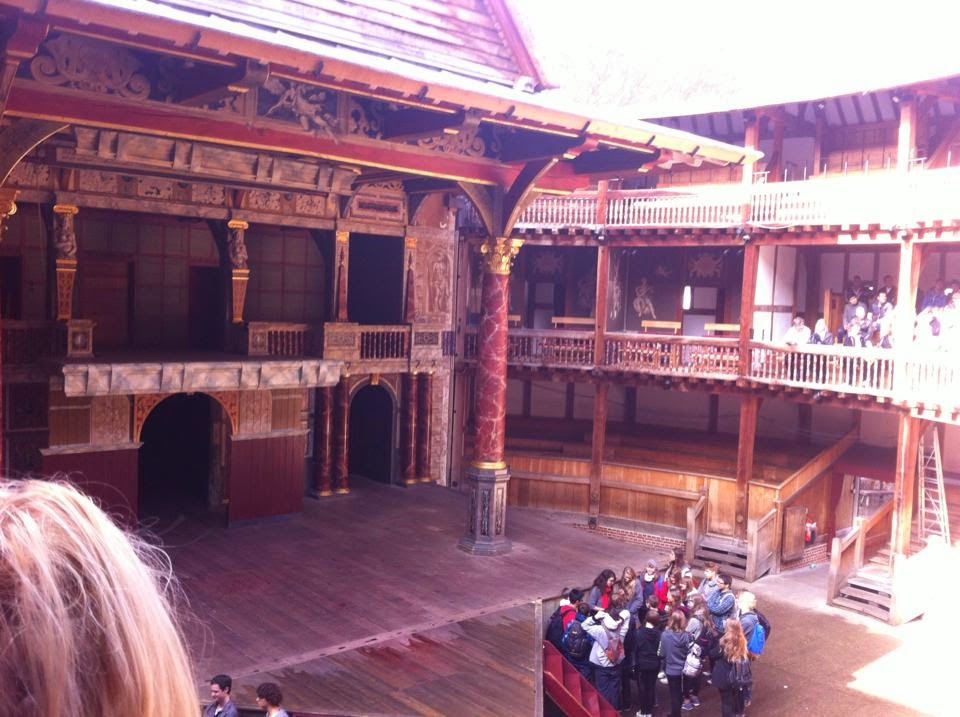Julius Caesar was a tragedy, that was thought to have been written in 1599, it looks the 44 BC conspiracy surrounding the Roman Dictator Julius Caesar's assassination, and then the fall of the conspirators at the Battle of Philippi, it also looks at the themes of honour, patriotism and friendship between the characters. The play is based on true events, but also sheds light on 16th century English Political views, for instance at this time Queen Elizabeth was 66-years-old, it was clear that she was never going to produce an air to the throne at this time, and so many of her subjects questioned what would happen upon her death. Many of them believed that chaos would hit the streets, once she died, so they were looking at who would take her place, and who would be fit to rule. If you look at the history and the play itself they intertwine with one another for instance, Julius Caesar had no children, just like Queen Elizabeth, also the play looks at Caesar "subjects" and how they are worried about how much chaos his death would bring to the people, which in turn does happen after Mark Antony's "Friends, Romans, Countrymen lend me your ears" speech, so it is as if Shakespeare was foreshadowing life events before they had happened. Also chronological errors within the language for instance Shakespeare has characters mention objects such as hat and doublets, that did not exist in ancient Rome, Caesar is written in to be wearing an Elizabethan doublet instead of the traditional Roman toga.
However a lot of the play has true events of Ancient Rome written into it for instance:
The play begins with Caesar arriving from the Battle of Munda in 45 B.C, which summed up quickly is that the son's of Pompey wanted to avenge their father "Pompey the Great" who was assassinated trying to flee from Caesar after a battle over power, Caesar tracked down Pompey's sons to Spain where the battle took place.
Also the assassination of Julius Caesar was done so by Roman senators, who went by the name "Liberators", they were led by Gaius, Cassius Longinus and Marcus Junius Brutus, they committed this deed adjacent to the Theatre of Pompey on the 15th of march, also referred to by the Soothsayer when he warns Caesar "beware the Ides of March", at this time Caesar was declared a Dictator, and the senators feared that he would become too powerful and eventually overthrow the Senate who were in favor of tyranny, yet Caesar's assassination never led to the Roman Republic being restored, instead it caused a civil war between the "Liberators" and the Roman Empire, in which like the play the "Liberators" fall.

Our trip to the globe was a real eye opener, the experience of being stood in the pit was great, it really made you feel part of the atmosphere, and it added to the atmosphere being in such a large space with others shoving you about, as well as having the seated people see us in the pits made me feel more like a part of the play itself. The way the actors used the stage as well as the pits meant that there was no need for set, as they didn't have it back in Shakespeare's time, and this wasn't a problem as they took a completely different approach to it which was fantastic. We did a workshop during the trip and one thing that fascinated me was Shakespeare's approach to scripts, he didn't want to give people the script in full in case somebody stole his ideas so he gave them a script with their lines and line cue lines on it and just thought it was a fantastic way to not only protect his plays but also to learn cue lines, and I will in the future use this technique.






